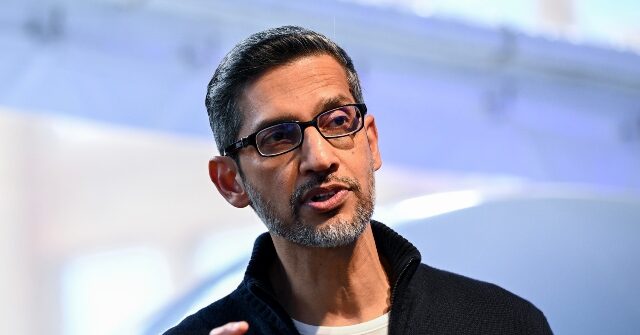A new study has revealed that Google’s AI-generated search result summaries are leading to a drastic reduction in referral traffic for news websites, with some losing nearly 80 percent of their audience.
The Guardian reports that a recent study conducted by analytics company Authoritas has found that Google’s AI Overviews feature is causing a significant decline in traffic to news websites. The AI-generated summaries, which appear at the top of search results, provide users with the key information they are seeking without requiring them to click through to the original source.
According to the study, a website that previously ranked first in search results could experience a staggering 79 percent drop in traffic for that particular query if the results appear below an AI overview. This alarming trend has raised concerns among corporate media companies, who are now grappling with what some consider an existential threat to their business model.
The research also highlighted that links to Google’s YouTube were more prominently featured compared to the standard search result system. This finding has been submitted as part of a legal complaint to the UK’s competition watchdog, the Competition and Markets Authority, regarding the impact of Google AI Overviews on the news industry.
Google claims it has refuted the study’s findings, with a spokesperson stating that the research was “inaccurate and based on flawed assumptions and analysis.” The tech giant argued that the study relied on outdated estimations and a set of searches that did not accurately represent the queries that generate traffic for news websites. Google maintained that it continues to send billions of clicks to websites every day and has not observed the dramatic drops in aggregate web traffic suggested by the study.
Breitbart News previously reported that Google is seeking AI licensing deals with corporate media companies, in part to mollify concerns about AI cannibalizing their content.
A separate study conducted by the Pew Research Center, a US thinktank, corroborated the significant impact of AI summaries on referral traffic. The month-long survey, which analyzed nearly 69,000 Google searches, found that users clicked on a link under an AI summary only once every 100 times. Google also disputed the methodology and query set used in this study, claiming it was not representative of actual search traffic.
Senior news executives have expressed frustration with Google’s unwillingness to share the data necessary to accurately assess the impact of AI summaries on their traffic. The MailOnline, a major UK publisher, reported experiencing a substantial drop in clicks from search results featuring an AI summary, with clickthrough rates falling by 56.1 percent on desktop and 48.2 percent on mobile devices.
The legal complaint filed with the Competition and Markets Authority is a joint effort by the tech justice group Foxglove, the Independent Publishers Alliance, and the Movement for an Open Web. Critics accuse Google of attempting to keep users within its own ecosystem, monetizing valuable content created by others while making it increasingly difficult for media outlets to reach their audience.
Long before AI chatbots became a fresh challenge to media outlets, Google has chosen winners and losers with its search algorithm. As Breitbart News proved with an in depth investigation of the internet giant’s censorship practices, Google purged Breitbart from search results leading up to the 2020 election:
Search visibility is a key industry measure of how findable a publisher’s content is in Google search. New data shows that Google has suppressed Breitbart’s search visibility by 99.7 percent since 2016.
On April 4, 2016, Breitbart ranked in the top ten search positions (i.e., on the first page of Google search results) for 355 key search terms; but now, as of July 20, 2020, Breitbart ranks in the top ten search positions for only one search term. And, on April 4, 2016, Breitbart ranked in the top 100 search positions for 16,820 key search terms; but now, as of July 20, 2020, Breitbart ranks in the top 100 search positions for only 55 search terms.
Moreover, organic Google search traffic to Breitbart (measured by unique visitors) is down 63 percent when comparing the first half of 2016 with the first half of 2020.
Read more at the Guardian here.
Lucas Nolan is a reporter for Breitbart News covering issues of free speech and online censorship.
Read the full article here


